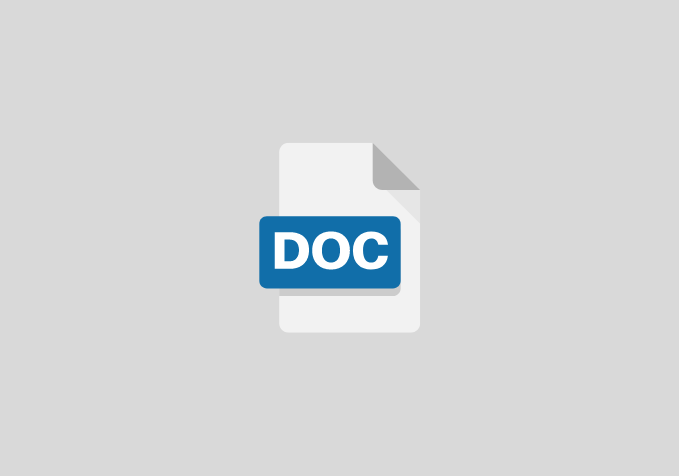A Proposal on Strategies to Enhance Teaching and Learning of Arabic Education in Secondary School
CHAPTER ONE
Objective of the study
The following objectives will be ascertained
- To find out the challenges of teaching and learning Arabic education in secondary school
- To find out the benefit of teaching and learning Arabic education in secondary school
- To find out the strategies that will enhance teaching and learning of Arabic education in secondary school
CHAPTER TWO
LITERATURE REVIEW
Relevance of Arabic to Nigeria Educational System
The history of Arabic education in Nigeria is a fairly long one, that its treatment here would either lead to a total digression from the main thrust of this study or cause it to be too wide. We shall, however, take a glance at its importance to West Africa as well as Nigeria and see why it needs being encouraged and protected in Nigeria educational system. Many centuries before the coming of the Europeans to West Africa, Arabic had brought its educational achievements as well as its rich literature to West African environment. The impact of Arabic on native speakers of West African languages, such as Hausa, Fulfude (Fulani) and Yoruba is reflected in the valuable works written by native west African authors in Arabic or native languages using the Arabic script. Many of these works form valuable source material for the reconstruction of African history. In fact Dike, a reputable historian of international repute, had once observed the significance of these Arabic works and submitted that; “It had been a revelation to the whole world of scholarship to realize for the first time that Africa before the European penetration, so far from being a “dark continent” was in fact a continent where the light of scholarship shone brightly as the Arabic works being discovered bear testimony.” In Nigeria, the position which Arabic occupies varies from one group to another. While it is a first language (L1) of the Shuwa Arabs of Borno State, it is a second language (L2) for our local and modern Arabic learners and a third language (L3) for government school learners.
CHAPTER THREE
ASPECTS OF ARABIC TEACHING AND LEARNING
Daily real facts show that people are more doing speaking and listening. This is reasonable since their initial lingual activities are listening and speaking as spoken language. Speaking skill is ability to pronounce articulation voices or words to state, express and deliver thought, idea and feelings. The listeners accept information through series of tones, sound pressures and joints determination when they are doing direct communication (face to face) and also speaker’s hand gestures and facial expression. Speaking skill is productive skill which is integrated. ‘Productive’ means that when speaking, people use spoken language to deliver talks about their thoughts, ideas and feelings. ‘Integrated’ means in the talks, there are combination of number of skills to be components of talks, mastery of talks, mastery of techniques and language performance. Speaking skills should be trained for students through process of learning and practices continuously and systematically to accelerate the students in communication. There are two activities done alternately by individuals in their communication: being communicator and being communicant. In an effective communication, a rapid changing process from being communicator to being communicant or vice versa is considered an ordinary and usual event.
CHAPTER FOUR
RESEARCH DESIGN AND METHODOLOGY
The researcher used descriptive research survey design in building up this project work. The choice of this research design was considered appropriate because of its advantages of identifying attributes of a large population from a group of individuals. The design was suitable for the study as the study sought to strategies to enhance teaching and learning of Arabic education in secondary school
METHOD OF DATA ANALYSIS
The researcher will employ oral and direct interview in administering this research questions. Responses from the respondents were needed unlike questionnaires, which is less rewarding due to late receipt and loss of responses from respondents. The method of data analysis that will be used by the researcher is the simple percentage. More so, percentage and degrees of the responses will also be used in the analysis. Here, the ratio of those whose responses were not in the affirmative will be found and conclusions will be drawn there upon. Representations of the level of responses will be made in tabular form. The Statistical Package for Social Sciences (SPSS) software will be used to test the hypotheses.
References
- S.H.A. Malik. 1980. Towards the Improvement of the Teaching of Arabic as a Foreign Language, Al-Fikr. Vol. 1, No 1, p.32. 2.
- J.O. Hunwick (ed). 1965. Report on a Seminar on the Teaching of Arabic in Nigeria. pp. 31f. University of Ibadan Press, Ibadan. 3.
- I.A. Lawal. 1991. The Teaching of Arabic Literature and Grammar Under the New System of Education (6334), Arabic and Islamic Studies in Nigerian Schools Challenges of 6-3-3-4 Educational System. p.21. Sebiotimo Press, Ijebu-Ode. 4.
- M.A. Bidmus. 1991. “In Quest of Methodology of teaching Arabic in Nigeria”. Arabic and Islamic Studies in Nigerian Schools: Challenges of 6-3-3-4 Educational System. p.5. Sebiotimo Press,
- Ijebu-Ode. 5. Malik, op. cit. p.33 6. M.T. Yahya. “The Potentialities of a Language of Scripture in the Development of a Nation: The Case of Arabic in Nigeria”. Paper presented at the Conference on Religions and Development, 27-30 Sept. 1987, University of Ilorin, p. 11. 7.
- M.O Opeloye.1991. The Issue of Methodology of Islamic Studies in the 6-3-3-4 Arabic and Islamic Studies in Nigerian Schools: The Challenges of 6-3-3-4 Educational System, p. 35. Sebiotimo Press, Ijebu-Ode. 8.
- Bidmos, op, cit, p.3 9. M.O.A. Abdul, 1983. “The Teaching of Arabic in Nigerian Universities: Problems and Prospects, NATAIS, Vol. 11, No2, p.50. 10. Ibid, p.46 11.
- Bidmos, op, cit, p.3 12. W.O. Azeez. 1990. “Why Arabic Studies are Few in Nigerian Universities”. Al-Mirbad, Vol. 2, p.1. 13. Abdul, op, cit, p.51 14. Z.I.


